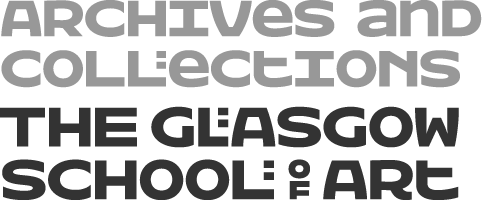Key Information
Type of entity
Person
Authorized form of name
Metzstein, Isi Israel
Parallel form(s) of name
Standardized form(s) of name according to other rules
Other form(s) of name
Identifiers for corporate bodies
Description area
Dates of existence
1928-2012
History
Isi Israel Metzstein was born in the Mitte district of Berlin on 7 July 1928. His parents, Efraim and Rachel Metzstein, were Jews of Polish origin who had fled their native country in 1920 in search of a better life. Isi had a twin sister, Jenny, as well as two older brothers, Lee and Josef, and a younger brother, Leo. His father died in 1933, leaving his mother to bring up the five children alone. After the terror of Kristallnacht in November 1938, during which Isi’s all-Jewish school was set alight, his mother resolved that she and her children should flee. Thus, at eleven years of age, Isi became part of the Kindertransport, boarding the SS ‘George Washington’ which brought him to Britain.
Isi was initially taken in by a family in Hardgate, West Dunbartonshire, and was subsequently placed in a hostel with other refugee children. His mother and siblings having likewise managed to escape Germany (his oldest brother Josef had fled earlier, Leo and Isi’s twin sister Jenny arrived separately by train, and his mother and sister Lee escaped later), the family was among relatively few to be reunited at the end of the Second World War, and they settled in Glasgow, which he soon came to consider his home town – although he never lost his strong central European Jewish accent. Despite the fact that the course of his life was so closely determined by the rise of Nazism, he would always insist that he was not a ‘victim’ of the Holocaust, stressing that he had been fortunate enough to avoid its horrors and indeed to benefit from opportunities offered in his adopted country.
The young Isi attended Hyndland School. When he left in 1945, he had his sights set on a career in architecture; a friend’s mother was the seamstress of Eden Coia, wife of the celebrated architect Jack Coia, and it was through this connection that he secured an apprenticeship in the firm of Gillespie, Kidd & Coia, of which Coia was the only surviving partner. In the same year, Metzstein enrolled for evening classes at Glasgow School of Art. There he met Andy MacMillan, and the pair quickly became firm friends. Every Wednesday, what was often referred to as the ‘Isi and Andy’ double act could be found at the King’s Arms on Elmbank Street, discussing architecture, culture and politics.
Metzstein was to remain in the same architectural firm for the rest of his professional life, and MacMillan joined him there in 1954. The two were to carry out most of the practice’s design work from around 1957 onwards, as Coia approached retirement. Metzstein was elected a student member of the RIBA in 1957 though he does not seem to have become an Associate.
Working in a bold and highly original Modernist idiom, Metzstein and MacMillan collaborated on a series of notable Roman Catholic churches between that year and 1980, of which St Bride’s in East Kilbride (1963–4) is among the most remarkable. Their masterwork is considered to be St Peter’s Seminary, Cardross, completed in 1966, which was to be the first modern building to be awarded Category-A listed status. They were also responsible for a series of important university buildings, including halls of residence at Hull (1963–7), additions to Wadham College, Oxford (1971–7), and Robinson College, Cambridge (1974–80). Although strongly inspired by Le Corbusier, they drew on sources as diverse as Victorian Glasgow, medieval urbanism and abstraction, and Metzstein always emphasised the importance of designing from first principles.
In 1969 Metzstein began teaching at the Glasgow School of Art, and he spent an increasing amount of time doing so as commissions grew harder to come by in the 1970s. He was appointed Professor of Architecture at Edinburgh University in 1984, returned to teach in Glasgow in 1991, and also taught at the Architectural Association in London, as well as lecturing throughout the UK and further afield – including at Syracuse, with Richard Murphy. He earned a reputation as a great thinker and a highly inspirational teacher, the directness of his advice to students and colleagues alike balanced by great warmth and wit; MacMillan remembers him as ‘the king of the Jewish one-liner’. He and MacMillan were to receive a lifetime achievement award for teaching from the RIBA in 2007.
He met his future wife Dany, also of central European Jewish origin, at a cocktail party; it was a successful set-up that resulted in love at first sight. They married in 1967 and had three children: Saul, Mark and Ruth. All three would study under him, and his son Saul recalls that ‘he was a father figure to his students, of which there were many hundreds’. Metzstein shared his passion for travel with his family; he was particularly fond of New York, Venice and Paris. Among his other interests were science, language, puzzles and cinema; he stated that if it had been possible in 1940s Glasgow, he would have liked to become a film director.
Metzstein died at his home in Glasgow on 10 January 2012. He was survived by his wife, his three children, a grandson (Eli), and his sister Jenny and brother Leo.
Places
Legal status
Functions, occupations and activities
Mandates/sources of authority
Internal structures/genealogy
General context
Relationships area
Related entity
Identifier of the related entity
Category of the relationship
Dates of the relationship
Description of relationship
Related entity
Identifier of the related entity
Category of the relationship
Dates of the relationship
Description of relationship
Access points area
Subjects
Place access points
Occupations
Control area
Authority record identifier
Institution identifier
Rules and/or conventions used
Status
Level of detail
Processing information
Language(s)
Script(s)
Sources
The Dictionary of Scottish Architects: http://www.scottisharchitects.org.uk/architect_full.php?id=200546

